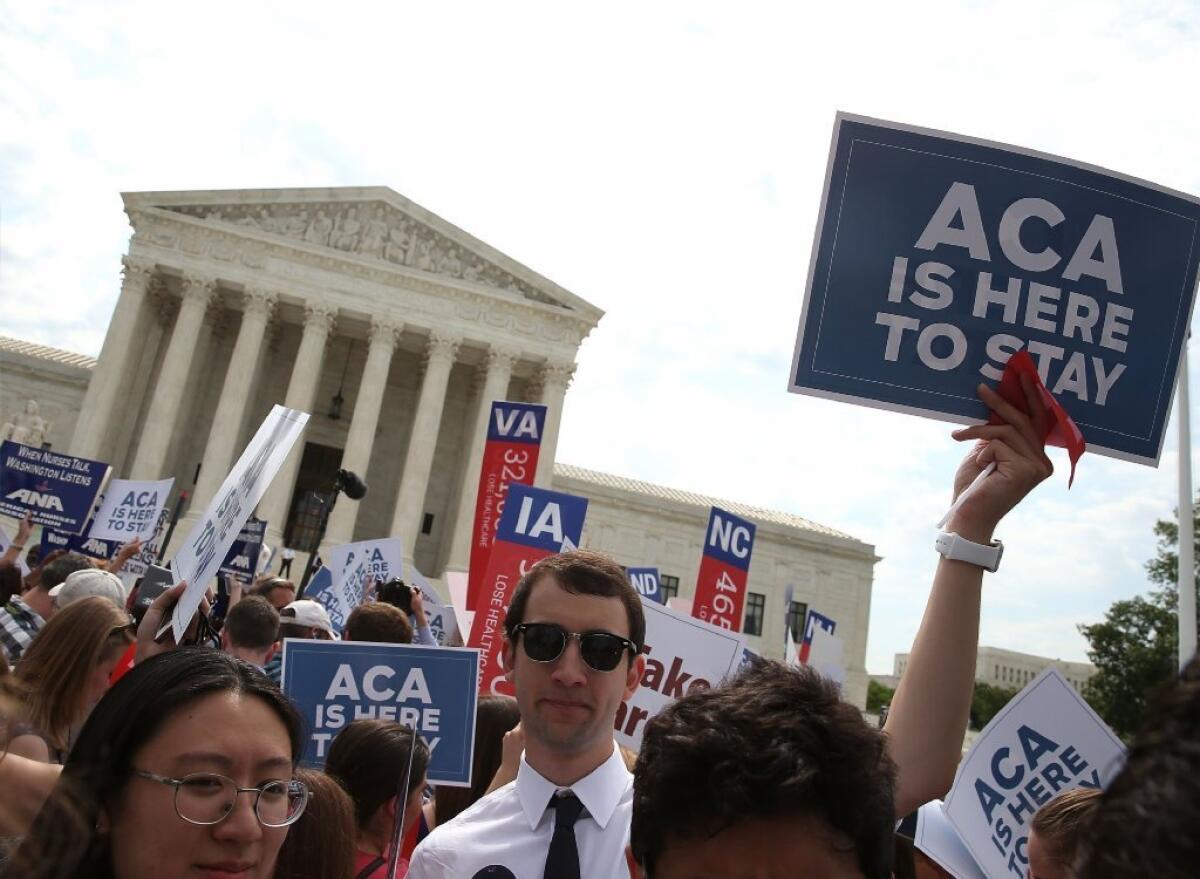Supreme Court’s Obamacare ruling boosts hospitals, health insurers

Supporters of the Affordable Care Act cheer outside the Supreme Court building after the June 25 announcement of the court’s decision upholding the healthcare law’s subsidies nationwide.
- Share via
Health insurers and hospitals welcomed Thursday’s Supreme Court decision upholding billions of dollars in Obamacare subsidies for U.S. consumers.
Many employers also applauded the 6-3 ruling, fearing the chaos that might have ensued in the health insurance markets from a ruling striking down the subsidies.
In wake of the decision, employers and other healthcare industry officials urged political leaders to tackle the unfinished business of taming the country’s runaway medical spending.
“If we do not do more to control healthcare costs, the entire thing will collapse under its own weight regardless of what the Supreme Court or any other political body says,” said Micah Weinberg, president of the Bay Area Council Economic Institute, an employer-backed group in San Francisco.
On Wall Street, hospital and health insurance company stocks rallied on news of the court decision.
Shares of hospital chain Tenet Healthcare Corp. shot up $6.13, or 12%, to $56.21 in trading Thursday.
UnitedHealth Group Inc., the nation’s largest health insurer, saw its shares jump $3.16, or 3%, to $122.33 after the decision was announced.
“Today is a sigh of relief for the healthcare industry,” said Megan Neuburger, a managing director and industry analyst at Fitch Ratings.
“The court’s decision to side with the administration in King vs. Burwell is ultimately positive for hospitals and health insurers as it keeps the status quo, which has been beneficial to them,” she said.
Aetna Inc., the nation’s third-largest health insurer, said subsidies played a significant role in attracting 6.4 million customers to federally run exchanges, and that an adverse ruling would have posed a major disruption.
“We believe that reform of the Affordable Care Act is still needed,” Aetna said in a statement. “We urge Congress to focus on solutions that improve quality, transition our payment system to value-based care and broaden consumer choice.”
Employer groups said they hope the court decision allows Congress and the Obama administration to address numerous issues related to the quality and cost of U.S. medical care.
“Now that the legal questions have been answered, the administration and Congress need to focus on real health reform -- rationalizing the way we pay for and deliver healthcare in this country,” said Steve Wojcik, vice president of public policy at the National Business Group on Health.
Twitter: @chadterhune
More to Read
Inside the business of entertainment
The Wide Shot brings you news, analysis and insights on everything from streaming wars to production — and what it all means for the future.
You may occasionally receive promotional content from the Los Angeles Times.











